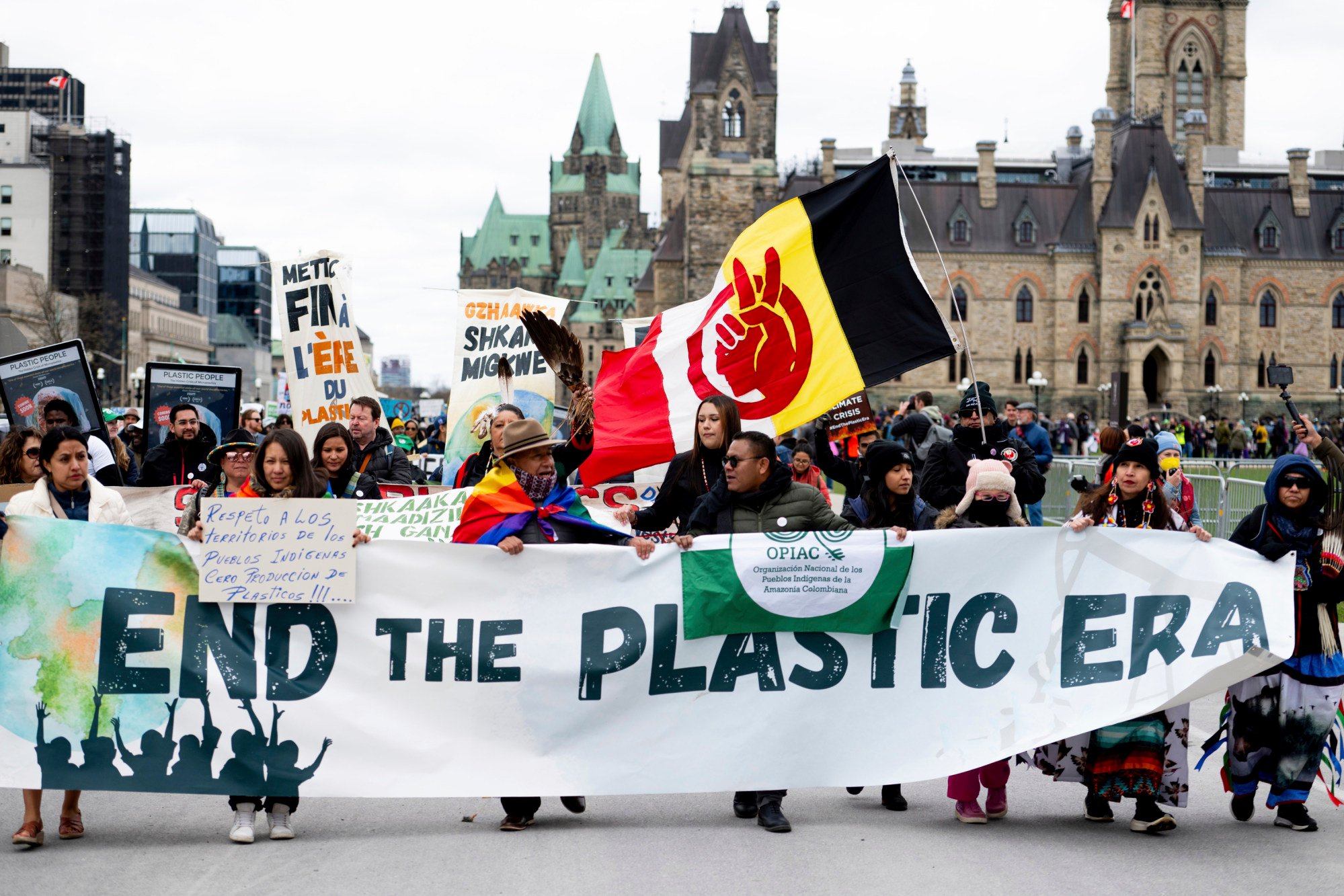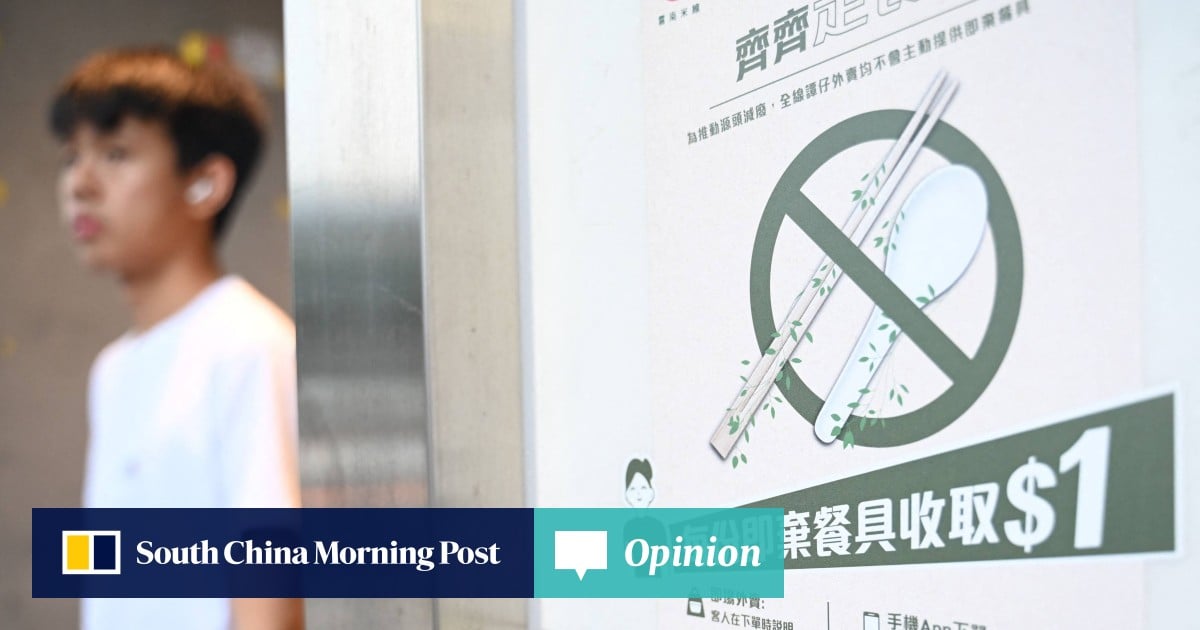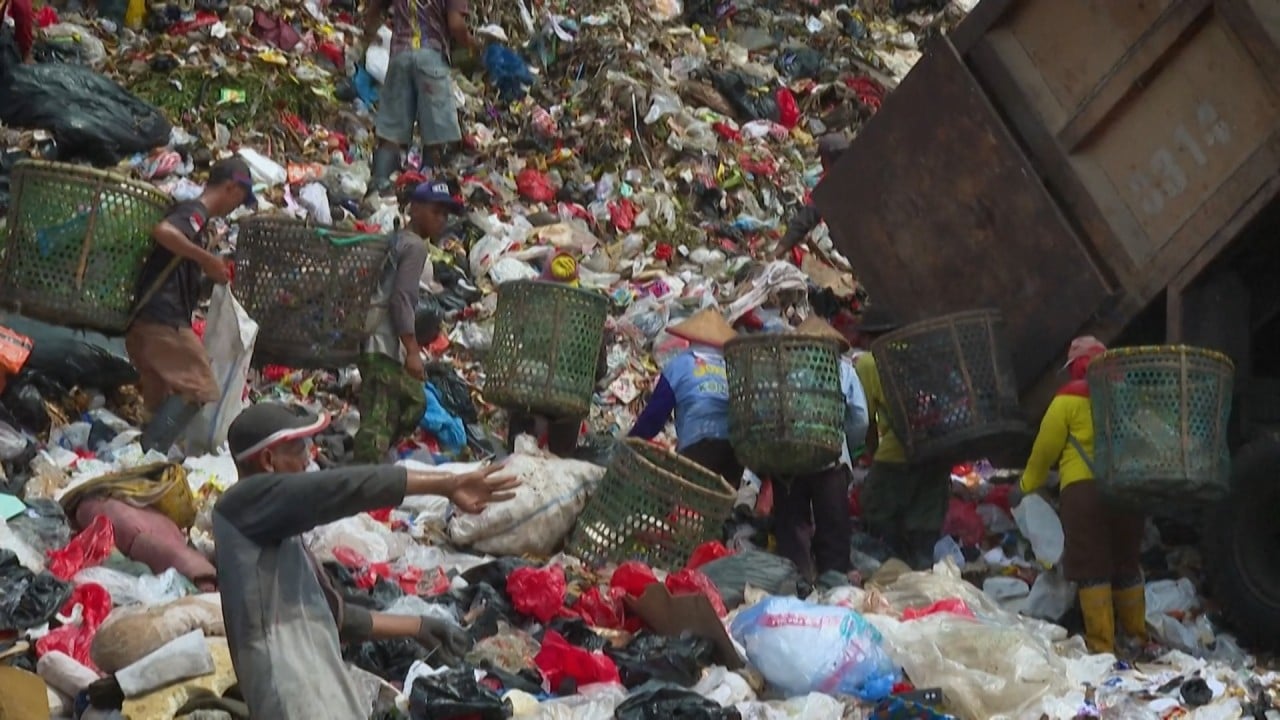But the food for thought is – if small-sized single-use items with abundant reusable alternatives aren’t the first ones to be regulated, what else could it be? For generations, we have been spoiled by plastic usage due to businesses providing disposable plastic. Consequently, Hong Kong’s daily plastic disposal reached a staggering 2,369 tonnes per day in 2022, where disposable plastics ranked as the second largest part of the city’s municipal solid waste.
To address the root of the problem – “disposable culture”, every sector must help with reducing at source by facilitating reuse and phasing out single-use items. This necessitates the acknowledgement of social responsibility by all stakeholders, rather than solely relying on customers’ efforts.
A recent waste-charging trial conducted by Greenpeace involving 45 households revealed that nearly 50 per cent of their waste consisted of disposable takeaway items and product packaging. This finding indicates that citizens often have limited options and end up purchasing takeaways or products with excessive packaging.
The implementation of the waste charging scheme requires people to bear the cost of the packaging they generate. But it is essential to establish producer responsibility schemes that regulate corporations and encourage them to reduce packaging at the source, particularly plastic packaging. Such schemes have the potential to significantly reduce the use of unnecessary plastic packaging. This is vital, because producers hold responsibility for minimising materials and packaging during the production stage.
Embracing reuse initiatives must be a global policy trend. For instance, chain restaurants could develop reusable systems for takeaway containers. This approach would alleviate the burden of recycling for the public while lowering the cost and pollution associated with producing recycled plastic containers.
Research shows that a rental reuse cup system outperformed disposable cups in various environmental impact categories. Each reusable cup reduces greenhouse gas emissions by 25 per cent, water consumption by 37 per cent, and human toxicity by 34 per cent. Similar to a practice in Taiwan, chain stores such as shops that sell drinks, convenience stores, and supermarkets must offer a borrow-and-return cup service to customers.
Plastic pollution transcends geographical boundaries. Pollution within a city poses harm to nature and people located far away. Sadly, many residents remain unaware of this issue. The situation in Hong Kong is just the tip of the iceberg on our planet.
Globally, per capita plastic consumption in the Global North is around four times that of consumption in the Global South. Also, the costs of plastic pollution are disproportionately higher for low- and middle-income countries compared to high-income countries.
To address this crisis, leaders from 175 nations voted to adopt a global treaty for plastic pollution, negotiations for which are now under way in Ottawa. For the treaty to effectively combat plastic pollution, it must encompass measures that address the entire life cycle of plastic, from extraction to production to disposal. Such a treaty would constitute a significant victory for Global South countries, which bear the brunt of plastic pollution’s adverse effects.

However, the negotiations for the global plastics treaty in Ottawa are facing challenges. Fossil fuel and petrochemical interests are impeding progress towards a treaty that adequately addresses the needs of Global South countries. Despite experiencing the hardships caused by plastic pollution, some governments are reluctant to curtail plastic production due to concerns about losing investments.
Encouragingly, a recent Greenpeace survey indicates that people around the world are demanding a strong treaty that comprehensively tackles plastic pollution. Nations must not lose sight of the fact that a robust treaty will benefit everyone. It is a matter of survival for communities in the Global South and people worldwide.
Leanne Tam is a campaigner at Greenpeace East Asia – Hong Kong
Marian Ledesma is a zero waste campaigner at Greenpeace Southeast Asia – Philippines


